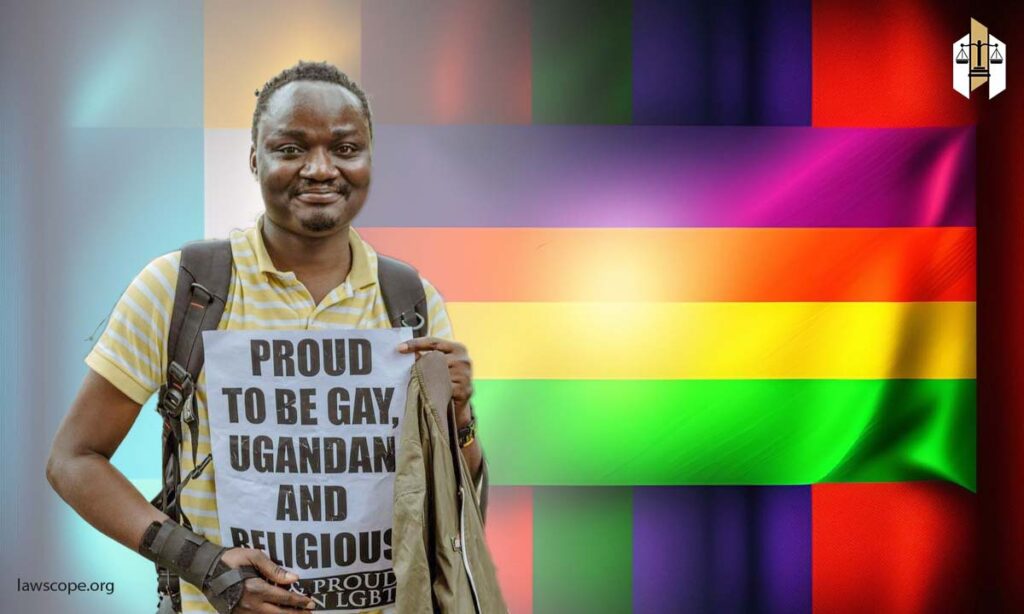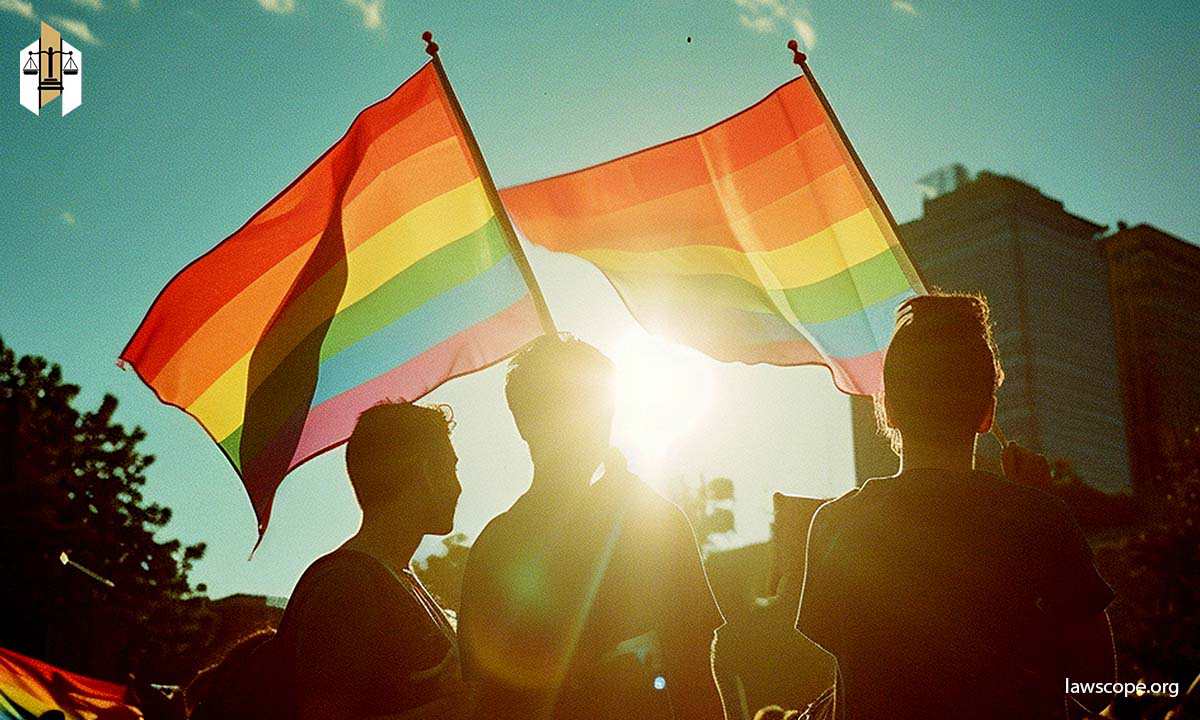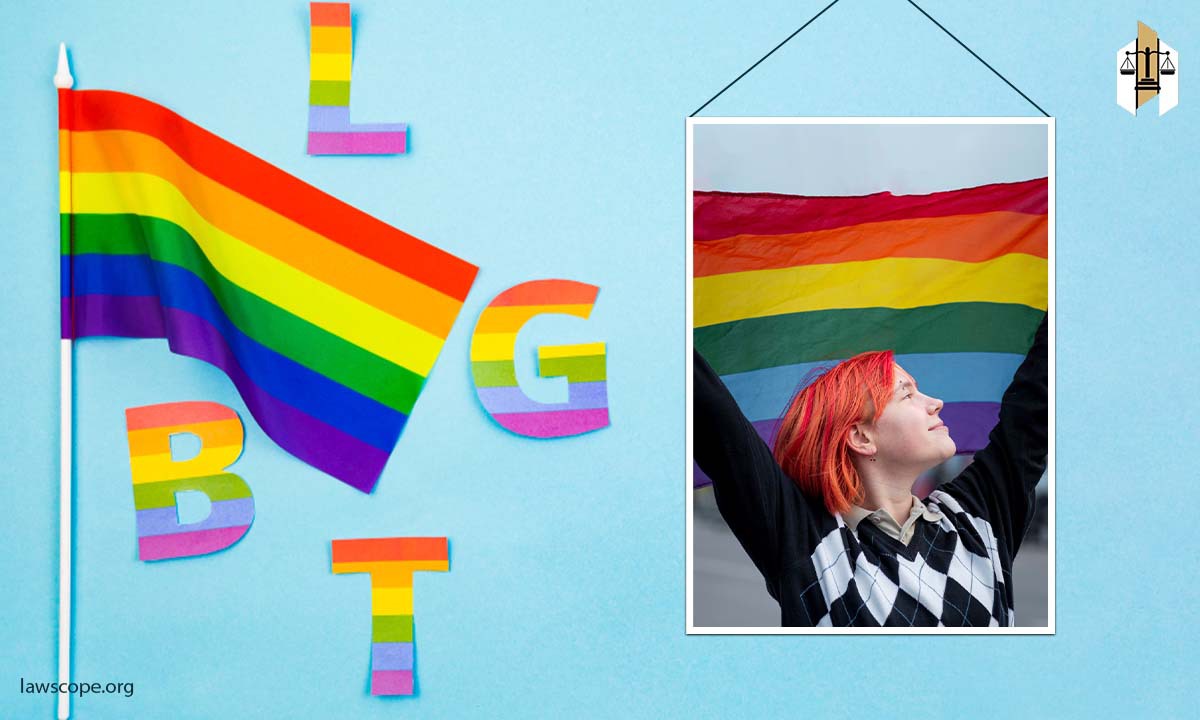
LGBTQ laws are quite common in most parts of the world. However, some parts of the world have completely ruled out the LGBTQ communities and Uganda is no different. This brings us to the Uganda anti LGBTQ law.
Here we will see what the law states, what other related laws have been enforced, and how they are impacting the rainbow community’s rights.
Anti LGBTQ Law: The Meaning Decoded

“LGBTQ” means a community of sexual orientations or gender identity of people not forming part of conventional society: “Lesbian,” “Gay,” “Bisexual,” “Transgender,” and “Queer,” which form an integral part of minorities in the community.
It includes four groups: lesbian, gay, bisexual, and transgender.
Gay is a term used in reference to lesbian people or regarding an emotional, romantic, or sexual attraction between two people of the same sex.
Queer is a term used to refer to people questioning their orientation of sexual life or their gender.
Otherwise, there is also another section of people known as Intersex and Asexual.
By Intersex, we mean variation at birth in sex characteristics and reproductive anatomy; asexuality means the preference of a person not to have sexual intercourse with another person.
The so-called anti-LGBTQ law refers to some legislation or policy through which people of diverse sexual orientation or gender identity would be brought under discrimination, marginalization, or targeting in one way or another.
The limitation of such laws is normally targeted at restricting the rights and freedoms or protection of people who are normally LGBTQ (Lesbian, Gay, Bisexual, Transgender, Queer/Questioning) and, as a rule, is further stigma, bias, or inequity.
Some Important Anti LGBTQ Laws in Various Jurisdiction That Discriminate Against Rainbow People Are:
- Equal Sex Sexual Relationships: Laws that make it illegal for adults to have same-sex relationships are called “criminalizing same-sex sexual relationships.” Punishments can range from fines and jail time to death in some countries.
- Advocacy of LGBTQ Rights: There are laws that prohibit advocacy, activism, or organization of any efforts that oppose the promotion of LGBTQ rights.
- Same-Sex Marriage or Civil Union Prohibited: Prohibition in the laws of same-sex couples getting married under the law or entering into a civil union with rights analogous to those of marriage.
- Denial of Access to Health Care: Policies or regulations that deny access to health care services, such as the provision of gender-affirming care or HIV/AIDS treatment, by health care providers who possess the legal right to do so based on religious or moral objections.
- Lack of Anti-Discrimination Protections: Laws or legal protections that specifically lack any prohibition on discrimination, for example, in work, housing, education, healthcare, and public accommodation on account of sexual orientation or gender identity.
- Conversion Therapy: Laws or regulations allowing conversion therapy, based on the unfounded belief that sexual orientation can and should be changed, offered by any professional or volunteers.
These are not only against the rights and dignity of the concerned persons or their individuality within the LGBTQ community, but they are correlated to the related social discrimination, prejudices, and violence that the LGBTQ community is bound to.
They impede the struggle of LGBTQ people for full equality, acceptance, and integration into society by enforcing ways of systemic discrimination and oppression.
The Uganda anti LGBTQ law also has similar or same things.
Uganda Anti LGBTQ Law: The Status And Impact

Uganda anti-LGBTQ law caused controversy around the world. The impact of Uganda passes anti lgbtq law includes discrimination, violence, and fear among LGBTQ people.
Anti-Homosexuality Act of 2014
In December 2013, the Ugandan Parliament passed a law saying that no one can have sex with someone of their own race (Pride Uganda Communities).
The act was originally dubbed the “Kill the Gays Bill” because of the death penalty clauses for homosexuals in the original version.
Later, it changed to life imprisonment.
On February 24, 2014, President Yoweri Museveni signed the bill into law.
The Ugandan Constitutional Court declared the Act invalid on August 1, 2014. They looked at how it was written.
Sexual Offences Bill of 2021
Back in May 2021, the Parliament of Uganda had successfully passed the bill.
The Ugandan bill was dubbed an agglomeration of many previous laws on sexual offenses.
The said bill also contained some provisions aimed at the counteraction of sexual violence and criminalization of relationships with same-sex people.
On the 18th of August, 2021, the President vetoed the bill.
Anti-Homosexuality Act, Uganda, 2023
The Anti-Homosexuality Act, of 2023, is an intentionally anti-LGBT Ugandan civil rights act, prescribing extremely harsh punishments for some same-sex relations.
This is related to the penal code, which prescribed life imprisonment for sex between people of the same biological sex and death for “aggravated homosexuality,” among a series of other punishments related to imprisonment for the promotion of homosexuality and fines of up to 20 years.
The Uganda anti lgbtq laws bill has condemned the United States, UK, Canada, Germany, and the European Union.
The Professionals
The version of the bill that Parliament passed on 21 March contained the following provisions:
- Homosexual acts are punishable by life imprisonment, and an attempt to commit homosexual acts is punishable by a maximum of 10 years in jail. A person convicted as homosexual or an attempt to be homosexual shall not be employed even after their release from imprisonment in child-caring institutions.
- Death is the punishment attached to the offense of “aggravated homosexuality,” with a maximum penalty attached to the offense being 14 years of imprisonment. Furthermore, persons who have been convicted of the crime of attempting to be too gay or too gay are disqualified for work in any child-care facility after they have served their sentences. Having sex with someone of the same sex but who is younger than eighteen years old or older than seventy-five years old is considered to be aggravating homosexuality. “Aggravated homosexuals” are people who have been convicted of homosexuality more than once.
Key Takeaways
- If a minor is found guilty of being homosexual, they can spend 3 years in jail.
- If you rent a place to someone who wants to do homosexual things there, you can be jailed for 10 years.
- The maximum penalty for promoting homosexuality in Uganda is 20 years of imprisonment.
- The maximum penalty for sharing homosexual pornography with a minor is 20 years in jail.
- The maximum penalty for recruiting or transporting a child to facilitate homosexual sex is life in prison.
- If you pretend to get married to a person different from you or go to a wedding in which they are actually different from you, then you may be liable to be imprisoned for 10 years.
- If you narrate an account of a homosexual act to somebody, you risk spending six months behind bars. The same does not apply to any lawyer speaking in his professional capacity.
- The maximum penalty levied for falsely accusing another person of homosexuality is one year in prison.
Related Content: LGBT Rights In The United States: Everything You Must Know
Conclusion: The Impact of The Uganda Anti-LGBTQ Law
How has this anti-LGBTQ law now affected Uganda, then?
The effect of Uganda anti LGBTQ law, for that matter, has really remained devastating and disturbing since it brought increased discrimination, violence, and persecution to the gay community.
Most of these people are harassed, physically attacked, and face death threats, all because the fact is that they feel attracted to or fall in love with a person of their kind.
The law has also prohibited LGBTs from ensuring proper access to health care and other important services.
This anti lgbtq law in Uganda further suffocates freedom of speech and advocacy of the rights of the LGBTQ, where many activists have a hard time trying to air out incidences of discrimination and injustices.
In this regard, the reality is that many of the LGBTQ people in Uganda actually live in fear, and secrecy, and are not able to live openly or seek support from their community.
Broadly, the anti-gay law has created a negative environment for gays in Uganda, where they are deprived of basic human rights and subjected to discrimination and prejudices on the widest level.
Efforts still continue that such laws are repealed or amendments are made, but the road to equality is very long and full of hitches.
You May Like Also:


